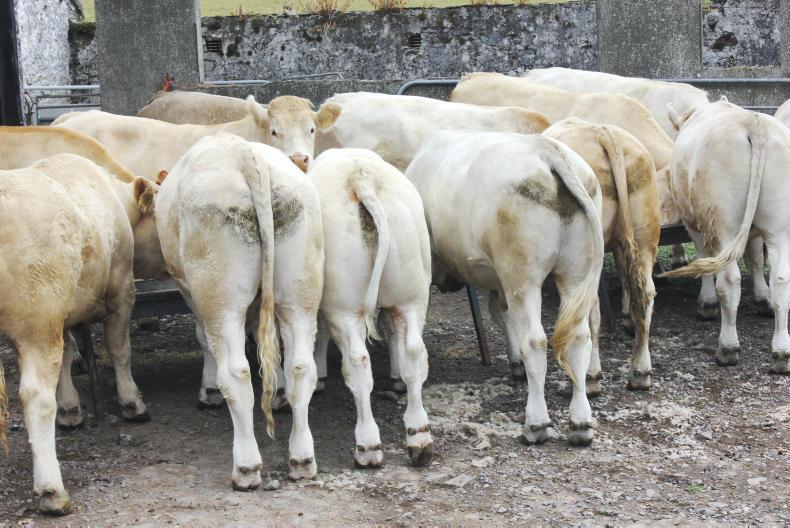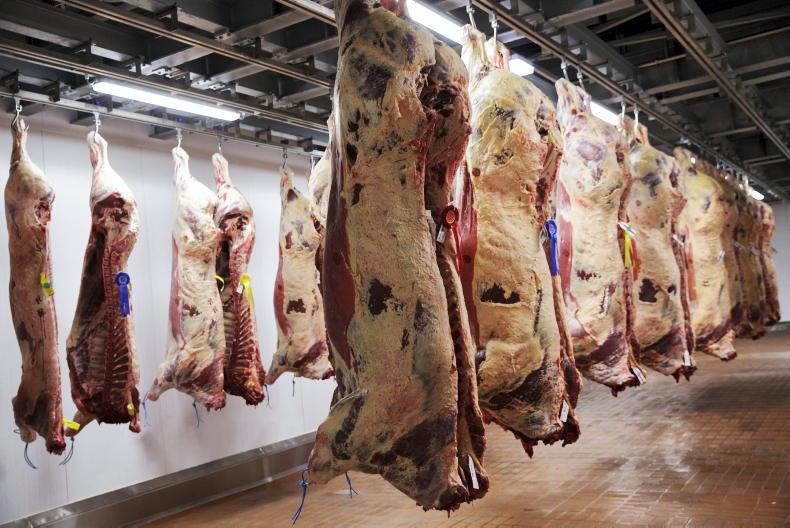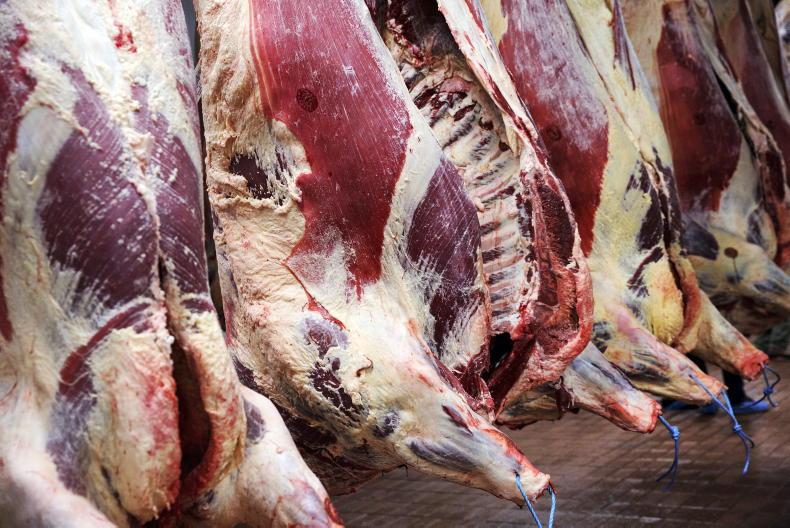In just eight weeks, the prices paid for beef cattle in NI are up nearly 40p/kg.
It is a very welcome turnaround in the trade, and has injected some much-needed confidence into the sector.
But at the same time we have all got to be aware of what has gone before, and the state the industry has been in this past winter.
Reports from farmers suggest that some factory agents have been indicating that the trade is not sustainable, and factory returns from wholesalers and retailers do not justify what is currently being paid to secure tight supplies of cattle.
Despite store cattle prices being down on previous years, the figure for a U-3 grade animal still came out at 375p/kg
If that is the case, then perhaps more needs to be done to educate others in the supply chain about the true cost of producing beef.
At the end of last October, we looked at what beef finishers would need in late April / early May to cover costs and leave a very modest £50/head margin.
Despite store cattle prices being down on previous years, the figure for a U-3 grade animal still came out at 375p/kg. So even now, with the top end of the trade at that level, the reality is that the profits being made are very slim.
For most finishers, that will not make up for the losses made in the first five months of the year.
Few, if any, farmers can make money at beef when prices are below 340p/kg
The trade generally sat around the 330/kg to 340p/kg mark, and dipped into the low 320s in the early stages of the coronavirus lockdown.
Few, if any, farmers can make money at beef when prices are below 340p/kg.
It is a similar situation for those who produce their own cattle and take them through to slaughter. Margins are down, and costs up over the last two years, with the latest CAFRE benchmarking figures understood to show average net margins (before labour, conacre and finance) below £100 per suckler cow.
Where the beef trade is now, is a starting point for where it needs to be.
Read more
Beef management: beware of worm burdens following rain
Welsh and German factories hit with COVID-19 clusters
In just eight weeks, the prices paid for beef cattle in NI are up nearly 40p/kg.
It is a very welcome turnaround in the trade, and has injected some much-needed confidence into the sector.
But at the same time we have all got to be aware of what has gone before, and the state the industry has been in this past winter.
Reports from farmers suggest that some factory agents have been indicating that the trade is not sustainable, and factory returns from wholesalers and retailers do not justify what is currently being paid to secure tight supplies of cattle.
Despite store cattle prices being down on previous years, the figure for a U-3 grade animal still came out at 375p/kg
If that is the case, then perhaps more needs to be done to educate others in the supply chain about the true cost of producing beef.
At the end of last October, we looked at what beef finishers would need in late April / early May to cover costs and leave a very modest £50/head margin.
Despite store cattle prices being down on previous years, the figure for a U-3 grade animal still came out at 375p/kg. So even now, with the top end of the trade at that level, the reality is that the profits being made are very slim.
For most finishers, that will not make up for the losses made in the first five months of the year.
Few, if any, farmers can make money at beef when prices are below 340p/kg
The trade generally sat around the 330/kg to 340p/kg mark, and dipped into the low 320s in the early stages of the coronavirus lockdown.
Few, if any, farmers can make money at beef when prices are below 340p/kg.
It is a similar situation for those who produce their own cattle and take them through to slaughter. Margins are down, and costs up over the last two years, with the latest CAFRE benchmarking figures understood to show average net margins (before labour, conacre and finance) below £100 per suckler cow.
Where the beef trade is now, is a starting point for where it needs to be.
Read more
Beef management: beware of worm burdens following rain
Welsh and German factories hit with COVID-19 clusters









SHARING OPTIONS